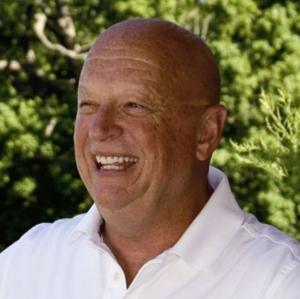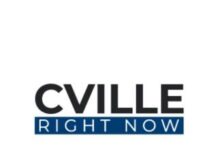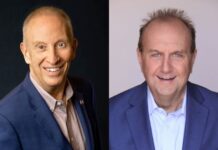
(By Jonathan Green) I was made for a career in radio. It just clicked for me. I followed my heart to pursue it, a tough stand for me. But it was the right thing to do. If you care, I have posted my job history at the end of this.
I am now 74.5 and comfortably retired and finally in a warm climate. I don’t listen to radio anymore. I look back at the industry’s transitions over 40 years and lament its path.
Here’s why:
- From 1969 into the later 70s, we played the best radio we knew how to for our audience. Twice per year we focused some programming on the two four-week ARB rating periods.
- Late 70s (I think) Arbitron, using its ridiculously flawed “diary” system of audience quantification, extended its sampling period to 48/52 weeks per year. I think the intension was to get a more accurate quantification of listenership.
- Measured market radio stations felt the need to address this. What happened when they sought to do so was an increased period of flawed sampling, flawed the product.
- “Program Directors,” often people whose in-studio capabilities had peaked causing them to enlist into management, increasingly adopted strategies to manipulate those few diary keepers out there. Inane and ubiquitous contests, incessantly annoying and redundant station ID phrasing, the famed “rubber clock,” stop-sets, etc., all became the demands of the PD. Anonymous diary keepers became the target audience. Program directing became ratings manipulating. Now a PD, in name only, is really a Ratings Manipulator.
- The concept of playing to the audience increasingly became ratings manipulation…manipulation by empowered failed-in-studio managers. Talented on-air people were forced to play to a VERY flawed sampling system.
- When PPM was introduced, I hoped it would bring back radio aimed at audiences. It did not. “Program Directors” are now established Rating Manipulators. That’s what they understand. It’s the new norm. Great radio, as I learned and practiced it as best as I knew how, is beyond their comprehension.
- SUMMARY: If all your station has to say is something relating to a contest (“listen tomorrow morning for…”); a catchphrase designed to make me remember your otherwise unremarkable station (“your listen-while-you-work station”); a promo, especially (this is a manipulator favorite) “appointment listening” (“ tune in at 5:27 for”… another boring interview”); or any of many bullshit manipulation-generated statements, your station is unlistenable to me.
Programming and Sales contradict one another
Here’s proof: A glaring flaw, the “stop-set” is an admission by “program directors” of their belief that people will tune out commercials. Jamming them together will cause extended listenership resulting in longer TSL and ¼-hour numbers. In turn, these ratings are given to sales reps to convince clients that listeners will hear their commercials. That is a contradiction.
If you must surrender 25% of your programming time to commercials, why not make them part of the show? If you are reading this and don’t, won’t, or can’t get that concept, I submit that you are further proof of my contentions.
I realize that many will dismiss this as the rantings of an over-the-hill geezer. That is not inaccurate. But to many, I hope there is a lesson to be learned from someone who cares and has loved the biz, but whom the industry has failed to keep aligned. By the way, I don’t Sirius/XM either. Spotify plays MY playlists to ME, and reading also allows me to choose what my brain digests. I may even read your opinion…or not. Same as you.
My Radio History
1962: I was in Ivy League Engineering at Cornell, when the radio bug bit at extra-curricular WVBR. I dropped out, worked briefly at little 250w day-timer WGLD in Chardon, OH. It went dark. Then weekends at WERE Cleveland. Full-time at its sister WLEC Sandusky, OH, and on to part-time at WTVN Columbus, OH, while at Ohio State trying to avoid being drafted. Failing that, I eventually landed the morning show at the American Forces Network, Europe (AFN-E) HQ in Frankfurt, West Germany. Discharged in 1969, I landed a gig at WTMJ Milwaukee where — except for a two-year dream-chase to a warm climate turning into a nightmare — I did PM Drive through 2010, retiring at age 66.5. I still love WTMJ Radio. Most of what I said here does not refer to WTMJ. And, to be fair, not all Program Directors are Ratings Manipulators. Interestingly, in my opinion, small-market unrated radio stations can be much more interesting and serve their audiences better, unless of course they’ve become the property of out-of-town controlling conglomerates.
P.S. I “Invented” the PPM!
For what it’s worth, I was so disgusted with the Arbitron diary system in the 90s, that I “invented” — at least in concept — what has become the PPM. And I can prove it. Before I had a computer, I wrote it down, copied it, and sent the original to myself in registered mail. It is still sealed. I called the ID process an “audio barcode.”






Did you happen to know my father James Werner
Unfortunately the advertising agencies and local advertisers that still exist seem to believe the big station mantra and ignore the little guy working hard to provide something the big group would never be willing to do. The national formulas are the only thing that most advertisers will buy yet they are so lame even the folks who work at the station won’t listen except during their air shift (when there is local voices on). How do you go about getting noticed with unique local content not available on the big boys – for instance 70 years of real country music and heavy play of local artists? I own KCEG780 in Fountain, Colorado.
Similar to the ridiculous shutdown of the American government, this conversation of Radio having been, likewise, literally shut down leaves a reasonable persona capable of any critical thinking at all, gasping for breathable air.
The only difference is that radio has been shut down for so long, there are very few who can even make the necessary distinctions.
Maybe a GoFundMe project for iHeart is not that far out of the realm of possibility.
I mean, there are certainly enough cloth-heads and gullible, uninformed rubes out here who would support such a project.
Commercial radio is only a slice of radio, and shrinking.
Of the 15,504 FCC licensed AM and FM stations, at least 2,800 are religious, about 800 are Spanish language, another 1,000 are NPR or Noncom classical music, and another 1000 or so are community or educational stations that are not using NPR.
There are now at least 1,822 stations playing country music, more than CHR or AC or Rock, yet most of the people in radio pretend the format doesn’t exist and would never consider learning about or playing “that music”.
Arbitron, BMI and ASCAP, and the record labels shaped this model called commercial radio. SiriusXM and business models that do not rely on advertisements are going to continue to erode commercial radio.
Ten years ago, the notion of NPR stations being #1 in a major market would have been unthinkable. Amazon is drying up local retail. The world has changed, and the future is being shaped by the next generations of smart people, and focused on a global view, not a world dominated by the culture of the United States.
“You give us 22 minutes, we give you the world.” That was the line made famous by WINS news radio over 40 years ago, long before PPM. Why did they structure their news clock around 22 minutes? To qualify for two quarter hours, and increase TSL. Radio stations have been gaming the system as long as there has been a system. It goes back to the golden age of radio and Hooper Ratings. If you invent a system, people will want to game it.
I wonder what would happen if we strive to radio each and every day a “ratings” day? Would “content” become our byword?
I only had 1, count ’em, one PD who wasn’t a gassed out on-air or production guy. And why a prod guy would even aspire to directing Talent is beyond me.
Still, that one guy – out of San Diego – lengthened my leash substantially, for which I have been eternally grateful.
Meanwhile, running outrageously expensive giveaways during the sweeps was standard. Resented for the obvious manipulations they were – even though we (that is, the owners) all had “licenses to print money”, anyway.
But the dye had been cast. Manipulating audiences and cheating advertisers became the accepted, devious and cynical norm – as it remains today.
That was a great summary of where radio has gone over the past 40 years. In the crapper (public radio not included). My mom used to take me to work at her radio station(s) all the time. LA in the 80s mostly. I fell in love with it. The roar of the sales pit, the silence outside the studio and those crazy traffic people (and I mean that in a good way). Each station she worked for was a “family”. But that was pre consolidation. By the time I got into radio after college, Clear Channel owned nearly 2,000 stations across the country and within 16 years two of the largest 3 radio companies would be going bankrupt, and the third not far behind. Radio today, again public radio excluded, is unlistenable. Stop sets that are 8x minutes in some cases. If a listener can get what they want/when they want on a variety of streaming services (with or without commericials) how does a struggling radio industry stand a chance? The answer? Content. And, in large part, commercial radio’s content stinks. To your point, though, small market radio can still be great. Because they are serving their community of listeners, not playing a ratings game.